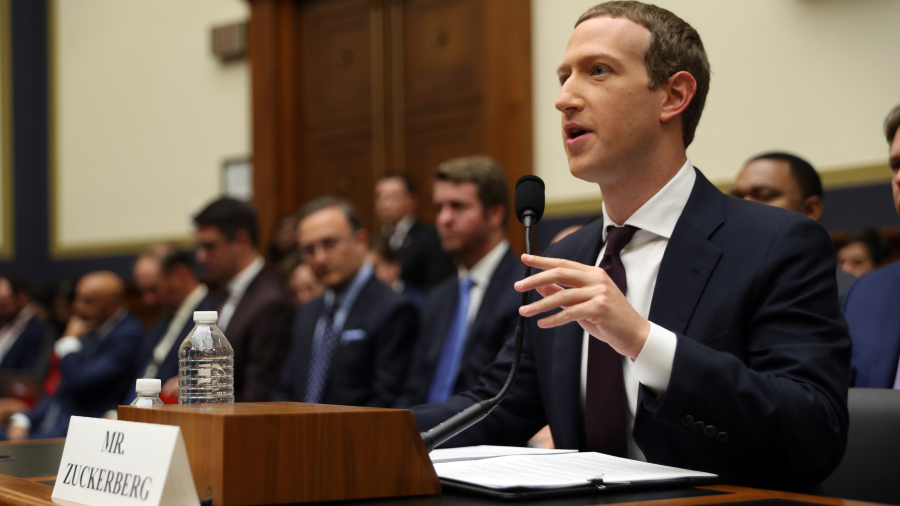The government achieves a breakthrough in its case against Meta

A U.S. District Court handed Lina Khan, the head of the Federal Trade Commission, a win this week. The judge gave the go-ahead for the FTC to continue its antitrust suit against Meta, the parent company of Facebook.
The suit alleges the company pursued an illegal “buy-or-bury scheme” to root out competitors.
The court shot down the agency’s initial complaint last June, after the judge said the FTC failed to sufficiently define the social media market and the company’s share of it.
Matt Stoller is the director of research at the American Economic Liberties Project. He said there were a couple of significant changes in the complaint this time around. The following is an edited transcript of our conversation.
Matt Stoller: First, they added a lot more detail about the market. And they said, “OK, we’re going to characterize the market by time spent.” And when you do that, which is the metric that Facebook uses to their own investors, Facebook has a massive share of social media — enough to be a monopoly. And the second thing they did is they changed the narrative a little bit, and in a meaningful way. The original narrative was: “Facebook is awesome, but they did a few things that were anti-competitive.” And the new complaint said: “Facebook isn’t very good at developing technology. What happened is they just bought all their competition, and that’s why they built an empire.” And when you make that claim, when you say, “Oh, they actually were not a startup in a garage, they’re just some predators that bought their way to dominance,” then the remedy can be much more aggressive. Because people don’t think, “Oh, well, they legitimately built this thing.” It becomes a “Oh, you stole a lot of what you have.”
Kimberly Adams: When you talk about remedies, in this particular case, what might those remedies look like?

Stoller: Well, I think the most significant one would be to break up Facebook into its component parts, so to spin off WhatsApp and to spin off Instagram. And then beyond that, you could have behavioral constraints. You know, they’re not allowed to engage in further mergers and acquisitions. They can’t deny competitors the ability to use some of their tools. You could see monetary remedies, monopolization of their damages involved, basically just saying, “You can’t monopolize anymore.”
Adams: And the judges allowing this case to move forward, what do you think is different this time?
Stoller: Antitrust cases are hard and laborious. The courts have weakened the law a lot. And one of the things that means is that it’s easy to get a case dismissed at the motion-to-dismiss stage. If you get through that stage, then you can go to trial. They got through the motion-to-dismiss stage, which is a really big deal. It means that they’re going to go through discovery, so they’ve already been investigating, but they’re gonna be able to get internal documents, do depositions, and then the company’s top executives are probably going to have to testify in a trial. And they don’t want to do that. And that’s a huge deal to put a [Chairman and CEO] Mark Zuckerberg on the stand, to put a [Chief Operating Officer] Sheryl Sandberg on the stand.
Adams: What does it mean for other big tech firms that this case was even able to move forward?
Stoller: So it’s a big deal. Lina Khan investigated a bunch of companies. So the fact that she’s not recused on Facebook means she’s not recused on any of the other companies. That means the FTC is able to bring other cases, on a very basic level. On a broader level, it means that judges, I think, who have been really hostile to antitrust law for three or four decades now, they’re more open to seeing monopolization cases. And the public pressure, the public arguments, the discussion about market power in general is having an impact.
Related links: More insight from Kimberly Adams
For a little more history on how we made it to where we are in the case now, The Washington Post walked through it when the judge dismissed the FTC’s case last year.
And Ars Technica has a piece with more details on this latest ruling in which the judge found the agency cleared the bar in providing strong enough arguments to move ahead.
Even though, according to Matt Stoller, we’ll likely be waiting years for any resolution in this case.
The future of this podcast starts with you.
Every day, the “Marketplace Tech” team demystifies the digital economy with stories that explore more than just Big Tech. We’re committed to covering topics that matter to you and the world around us, diving deep into how technology intersects with climate change, inequity, and disinformation.
As part of a nonprofit newsroom, we’re counting on listeners like you to keep this public service paywall-free and available to all.
Support “Marketplace Tech” in any amount today and become a partner in our mission.


















